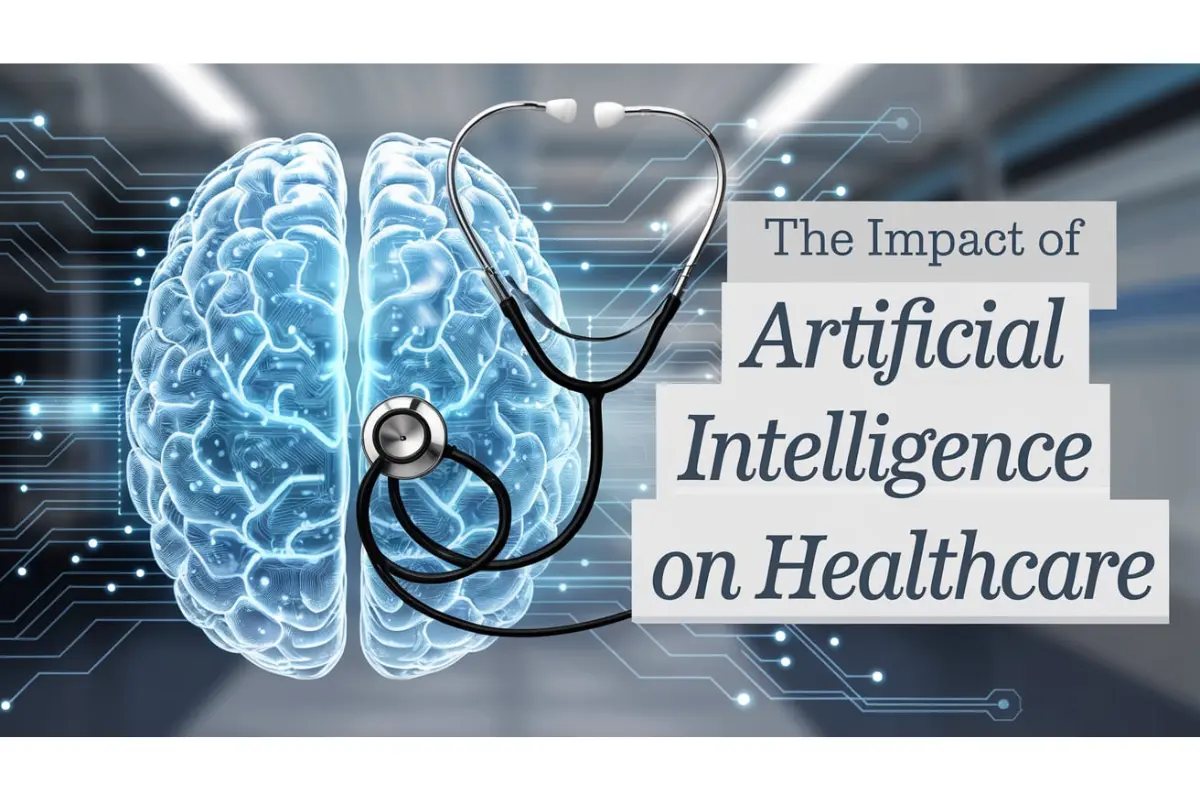Introduction: AI in Healthcare – A New Era
Artificial intelligence (AI) is transforming the healthcare industry, bringing advancements that were once the realm of science fiction. From diagnosing diseases to personalizing treatment plans, AI is reshaping how we approach medicine. This blog explores the profound impact of AI on healthcare and what the future holds for this revolutionary technology.
1. Diagnosing Diseases with AI
Early and accurate diagnosis is critical in healthcare, and AI-powered tools are enhancing diagnostic capabilities.
Medical Imaging and Diagnostics:
- AI algorithms analyze X-rays, MRIs, and CT scans with remarkable accuracy, often detecting abnormalities missed by the human eye.
- Tools like Google DeepMind’s AlphaFold predict protein structures, aiding in understanding diseases at a molecular level.
Predictive Analytics:
- AI analyzes patient data to predict disease risks, enabling early intervention.
- For instance, AI systems can identify patients at high risk for heart disease or diabetes based on their medical history.
Stat Check: AI-powered diagnostic tools have shown to be up to 95% accurate in detecting certain conditions like breast cancer, according to recent studies.
2. Enhancing Treatment and Personalized Medicine
AI is making treatments more precise and tailored to individual patients.
Personalized Treatment Plans:
- Machine learning models analyze genetic data to recommend targeted therapies, particularly in oncology.
- AI-powered tools identify the most effective medication combinations for individual patients.
Robotic Surgery:
- Surgical robots guided by AI, such as the da Vinci system, perform minimally invasive procedures with precision and reduced recovery times.
Example: IBM Watson Health uses AI to provide oncologists with data-driven insights to improve cancer treatment plans.
3. Revolutionizing Patient Care
AI is improving patient care through better monitoring and engagement:
Virtual Health Assistants:
- Chatbots like Babylon Health provide 24/7 health advice and symptom checkers.
- AI-driven apps help patients manage chronic conditions like diabetes or hypertension.
Remote Patient Monitoring (RPM):
- Wearable devices powered by AI continuously track vital signs, sending alerts for irregularities.
- This is especially beneficial for elderly patients and those with chronic illnesses.
Telemedicine Integration:
- AI enhances telehealth platforms by assisting in triage, scheduling, and even virtual diagnosis.
4. Streamlining Administrative Processes
Healthcare systems often face inefficiencies, but AI is addressing this:
Automation of Routine Tasks:
- AI handles repetitive tasks like scheduling, billing, and medical coding, reducing errors and saving time.
Clinical Documentation:
- Natural language processing (NLP) tools like Nuance’s Dragon Medical AI transcribe physician notes accurately.
Why It Matters: Reducing administrative burdens allows healthcare professionals to focus more on patient care.
5. Overcoming Challenges with AI in Healthcare
Despite its promise, AI in healthcare faces significant challenges:
1. Data Privacy and Security:
AI systems rely on vast amounts of patient data, raising concerns about confidentiality and cybersecurity.
2. Regulatory Hurdles:
Gaining approval for AI tools in healthcare is a lengthy process due to stringent safety standards.
3. Ethical Considerations:
Questions about accountability arise when AI systems make critical healthcare decisions.
4. High Implementation Costs:
Integrating AI technologies requires significant investment, which may be a barrier for smaller healthcare providers.
6. The Future of AI in Medicine
The future of AI in healthcare is bright, with potential advancements including:
- AI-Powered Drug Discovery: Reducing the time and cost of developing new medications.
- Advanced Genomics: Using AI to understand genetic conditions better and develop cures.
- Mental Health Support: AI-driven tools for detecting early signs of mental health issues and providing interventions.
Stat Check: By 2030, the global market for AI in healthcare is projected to reach $194.4 billion, according to Grand View Research.
How You Can Benefit
Whether you’re a healthcare professional or a patient, understanding AI’s role in healthcare can help you adapt to these changes:
- For Patients: Embrace wearable health tech and AI-powered apps to monitor your health.
- For Professionals: Stay updated on AI tools relevant to your specialty and seek training in AI applications.
Further Reading: Explore World Health Organization insights on AI in healthcare.













